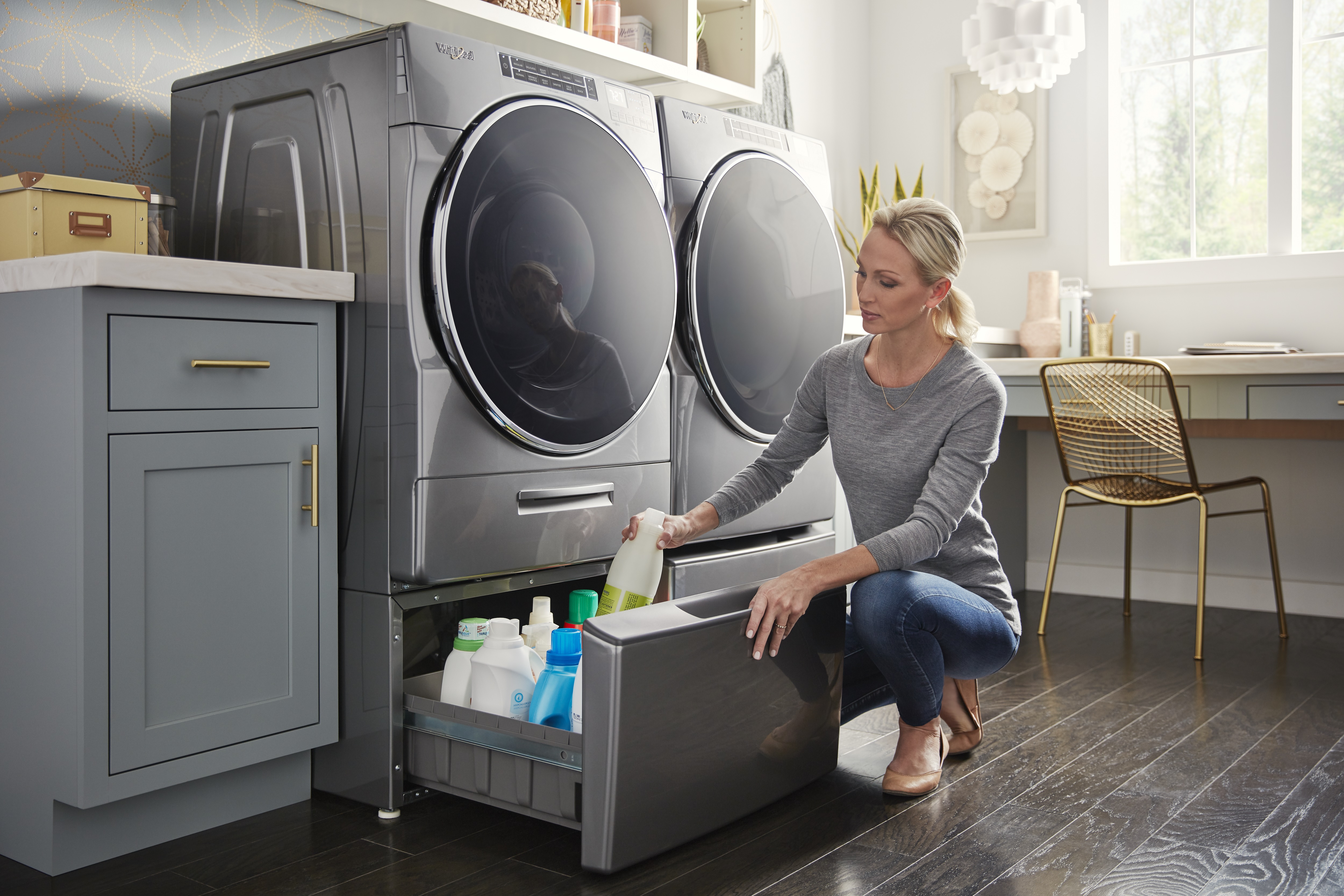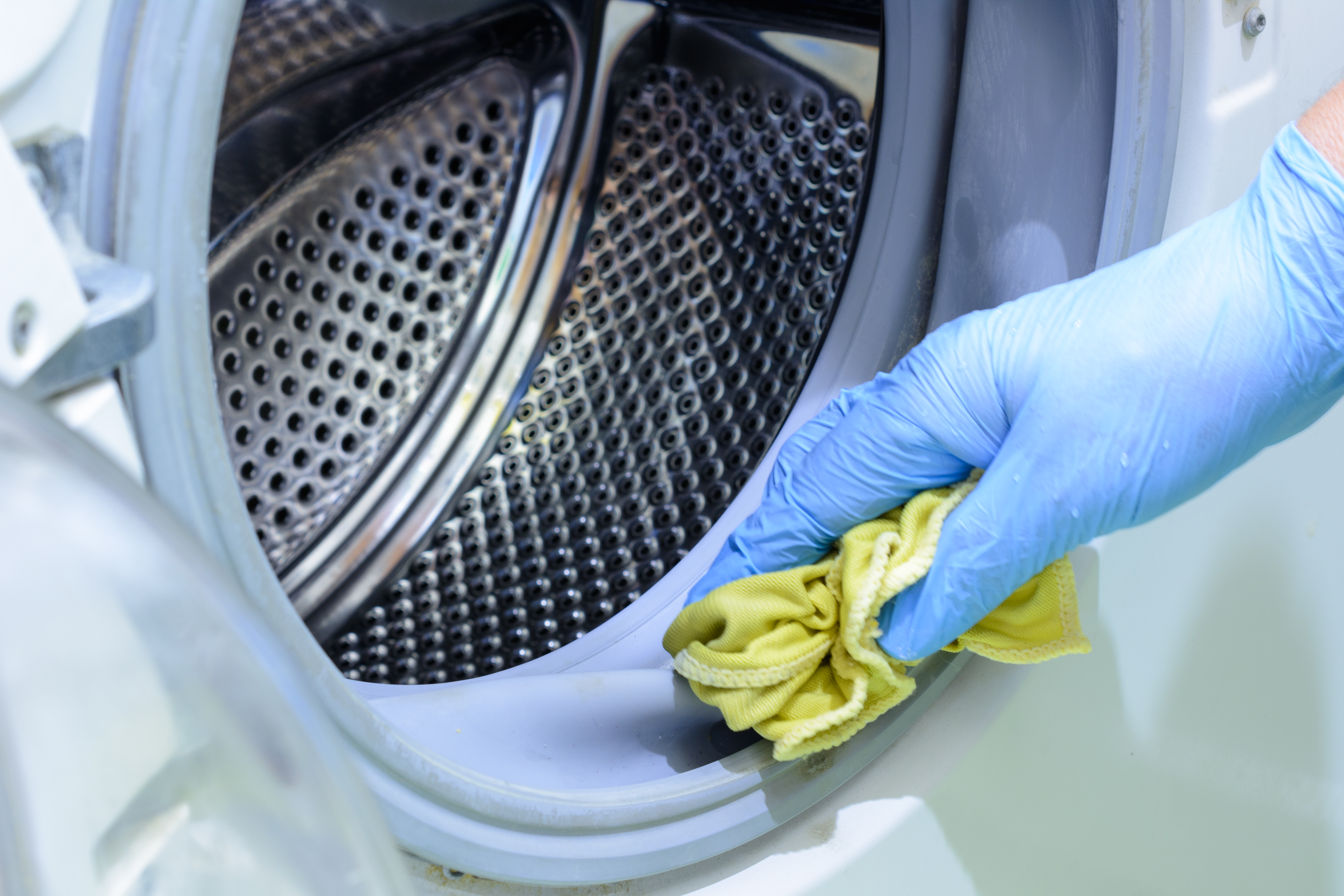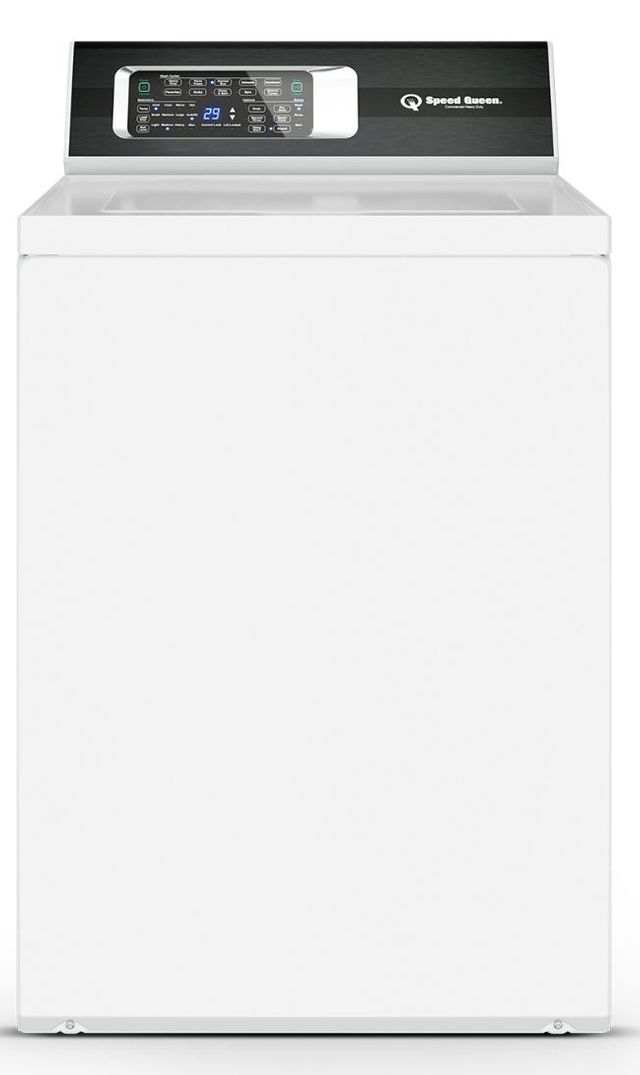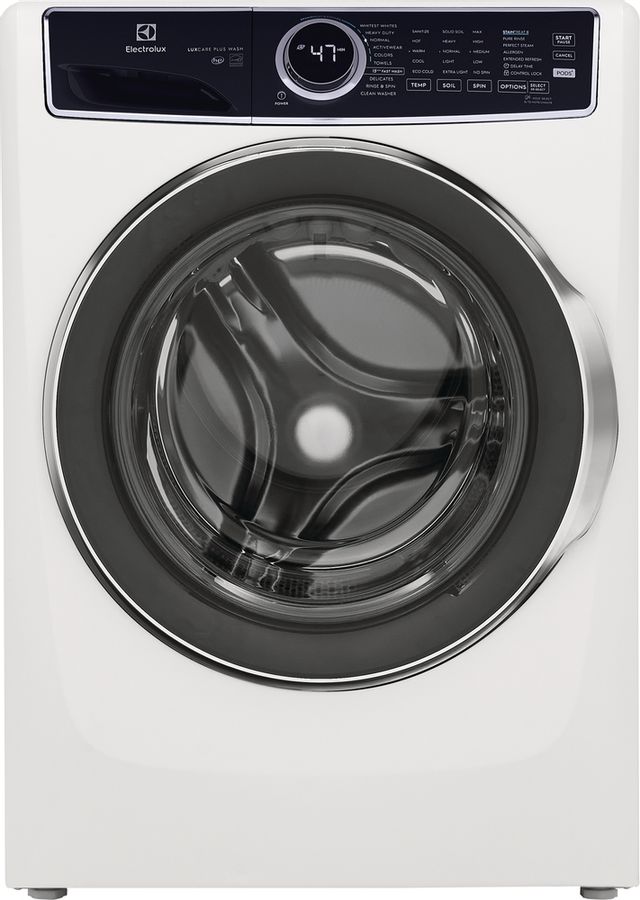
At a Glance:
Why Does My Washing Machine Smell?
Causes For Washing Machine Odor
How to Refresh a Smelly Washing Machine
Fuse Washing Machine Spotlights
Top Tips on How to Remove Smells from Your Washing Machine
How to Stop Your Washing Machine Smelling?
One day you might open the front or top loader door and smell something awful. Greetings, mildew. The rubber gasket in the washer's front, where the mold is growing, is the source of this odor. Even worse, this odor may seep from the gasket onto your clothing.
What led to this? The answer may lie in when the last time you cleaned was or ran the self-cleaning cycle in your washer. If it's been months, that might explain the gross smell coming from your washer
With all the detergent and water that pass through your washing machine, it makes sense to think that it cleans itself. Sadly, this isn't how it operates. To draw a comparison, it would be like presuming that because your shower is exposed to soap, you never need to clean it.
Regular cleaning of a front-load washer is necessary, especially to stop odors. Top-load washing machines that are more conventional can also emit odors, although these odors are frequently caused by leftover soap or standing water, which can be removed by a rinse and spin cycle.
While top-load washers also have problems, they don't use a gasket to keep water in the machine while it is running a cycle.
You must take action to combat the mildew if you are the owner of a front-loader washer. You must ensure you wash your washer now that you know how simple it is to do so.
In this how-to for cleaning your washer, our Fuse team will answer the big question: “why does my washing machine smell?” We’ll also cover what causes your washing machine to smell, how to fix it, and prevent future foul odors from your appliance.
Explore the Latest Washers
Discover front load and top load washing machines from today's best brands.
WashersSign Up for Our Newsletter
Be the first to learn about our premium appliances and special offers. We promise to keep your information private.
Why Does My Washing Machine Smell?
If the smell coming from your washing machine is making you gag, it appears that your washer needs to be washed. Mold, mildew, and bacteria are frequently to blame for the smells that emanate from washing machines.
In time, the washer's seals, gaskets, and dispensers become clogged with soap scum, dirt, body oil, and hair. Without routine maintenance, a washer eventually begins to smell about as repulsive as that accumulation of filth.
A laundry room's constant humidity and that toxic mixture can create the perfect conditions for bacterial growth. The irony is that the machine we depend on to remove dirt and stains on a daily basis now smells worse than the dirty laundry. Even the most durable appliances occasionally require some care and attention to get back on track.
Causes For Washing Machine Odor
If your washing machine smells, you must act right away. You need to be aware of the likely causes of your odorous washing machine before you can take any action. Most typically, bad smells in your washing machines are caused by a buildup of bacteria.
Here are a few of the most common causes of your that may provide an explanation for why your washing machine smells:
1. Detergent Residue
The typical cause of your front load washer smell is bacteria. It's conceivable that the detergent in your washing machine is now harboring bacteria because some of it wasn't thoroughly washed out.
Over time, the buildup of fabric softener and detergent in your washing machine may produce soap scum. As a result of the warmth and humidity of your washer, this scum makes the perfect home for bacteria.
Additionally, using too much detergent could cause your washing machine to smell. When washing clothes, always use the recommended amount of detergent because detergents are excellent places for bacteria to hide.
2. No Ventilation
In moist areas, mold can grow quite quickly, resulting in a foul odor from water buildup in your top-load washing machine that is never vented or cleaned. Any area that has consistent moisture and wetness may eventually develop a scent if you are not careful.
After the cycle, remove your clothes immediately, and when the room is not in use, leave the door open to let the moisture out.
3. Poor maintenance
A top load washing machine smells if it becomes clogged with materials like hair, lint, or animals/insects that have decide to live in the vents. This circumstance suggests that washing machine cleaning has an effect. A washer eventually smells about as disgusting as that dirt buildup without regular maintenance.
4. Drainage
A clogged drain plug can be the next possible cause if cleaning your washing machine doesn't solve the problem. Strong smells could indicate poor drainage or something blocking the drainage tubes. If this happens, the smell may enter your washing machine through the drain line.
Once the drain is fixed, the majority of the odor should go away, but you might need to rinse the pipe once more to remove it completely.
5. Low temperatures
Because low temperatures don't generate the heat needed to remove residue, bacteria can grow more easily. In other words, if you frequently use cool wash cycles, you provide germs habitat. Mold can rot as bacteria in clothing lines and thrives best in humid environments.
6. Washing with dirty water
Your laundry room and washing machine will smell like sulfur if you wash your clothes in dirty water. Only use clean water to avoid a washing machine that smells like rotten eggs.
How to Refresh a Smelly Washing Machine

Use the following four-step how-to-clean-washing-machine procedure to get rid of those unpleasant top-load washing machine odors: scrub, sanitize, and deodorize. Avoid mixing any cleaning products together, as this can be hazardous.
STEP 1: Remove your soap, bleach, and softener dispensers and scrub each carefully.
Cleaning the soap, bleach, and softener dispensers should be one of your first priorities if your washing machine has a mildew odor. If water enters any of these areas, it frequently remains there as standing water between cycles, which serves as a haven for mildew.
Use an old toothbrush to reach the dispenser’s nooks and crannies and then a pipe cleaner to remove any buildup that has become stuck inside the dispensers' pipes.
- If you have a front-load washing machine, make sure to use a wet cloth to wipe around the rubber seal and a cotton swab to remove any built-up gunk from the area around the gasket.
- On top-load washing machines, pay close attention to the nooks and crannies near the doors where dirt likes to hide. After you've finished cleaning the components, it's time to tackle the tub.
STEP 2: Sanitize your stinky washing machine with chlorine bleach.
Because chlorine bleach is the greatest method for eliminating mold and mildew, it is a reliable "go-to" when a washing machine stinks. When using bleach, be careful to take the necessary safety precautions and avoid combining it with other cleaning agents.
Depending on your washer, you should use different amounts of bleach: Start a cycle after adding 2 cups of bleach to a front loader or 4 cups to a top loader. The washer should be set to the highest temperature setting. Once the agitator has thoroughly blended the bleach, let the tub fill and end the wash cycle. Restart the cycle once the bleach water has been left to stand for 30 minutes. There should be no bleach left behind after one more rinse cycle.
STEP 3: Remove any lingering smells by following up with a vinegar wash.
In addition to being a great deodorizer, vinegar also eliminates hard water deposits and any germs that could have survived bleaching thanks to its acidic nature. Set your washer to the hottest setting to get started. For a top-load machine, add 4 cups of ordinary white vinegar, not balsamic or apple cider, or 2 cups for a front-loader. Use only vinegar in this cycle; don't add any other ingredients!
The next step should be familiar at this point: Once the agitator has thoroughly combined the vinegar and water, let the tub fill up before terminating the wash cycle. Restart the washer after 30 minutes, and let the cycle continue until it is finished.
STEP 4: Rinse out the drum by running a service wash with hot water.
Use a service wash to rinse the drum thoroughly after the vinegar wash is finished. Hot water is used to clean the appliance's interior in a service wash, also known as a maintenance wash or self-cleaning cycle. If your washing machine doesn't have a service wash setting, just set it for a lengthy hot wash cycle. Some newer washing machines might have a service wash setting.
One way to stop future washer odors is to run a service wash cycle roughly once every month. Before beginning a service wash, always ensure your washing machine is empty. To help remove more bacteria and odors than hot water alone can handle, you can also add a washing machine cleaner to the wash cycle.
Fuse Washing Machine Spotlights
Now that you know the cause of the smell coming from your washing machine and have tried to rinse, wash, and sanitize it without success, it might be time to buy a new washer. In order to restore the fresh scent to your clothing and appliance, our Fuse team has selected our top front loader and top loader washers.
Best Speed Queen Top Load Washer: Speed Queen® TR7 3.2 Cu. Ft. White Top Load Washer

Speed Queen washers are made to a higher standard because they are a part of a laundry brand empire. This top-load washing machine is durably built with premium materials for long-lasting, dependable performance and exceptional wash results. Thanks to the Speed Queen Perfect Wash system, your sheets, clothes, and towels will receive the best cleaning while being gently washed with the aid of the stainless steel tube. Your washer won't ever be unbalanced or shake violently from heavy loads thanks to the mount suspension system's full steel base and strong springs. You need a Speed Queen if you want your laundry done correctly.
Best Electrolux Front Load Washer: Electrolux 4.5 Cu. Ft. White Front Load Washer

If you like a device that keeps things simple without all the frills but still does the job, have a look at this Electrolux washer. This company is well-known for its energy-efficient products, and the high-capacity washer is no exception. This ENERGY STAR-certified washer comes with the world's first adaptive dispenser, which accepts most detergent brands, including PODS, if you prefer not to use liquid detergent for the smaller loads. With this washer's LuxCare Plus Wash system, which provides even distribution of detergents and fabric softeners, improved wash actions, temperature control, and intelligent load sensing, you can be sure that your loads will be thoroughly cleaned.
In addition to these pleasurable wash features, you can take advantage of cycles like the 15-minute fast wash, perfect steam, pure rinse, sanitize, and allergen washes for the deepest cleans.
Top Tips on How to Remove Smells from Your Washing Machine
- Clean your machine inside and out: Although some things may seem obvious, we all forget them. Simply take apart the washing machine, such as the detergent tray, and soak in bicarbonate of soda before cleaning with a toothbrush. The exterior can then be cleaned with a damp cloth.
- Don't forget the door seal: Cleaning the door seal after each wash is another way to remove the scent from your washing machine. Detergent, dirt, debris, and residue could be left behind after a cycle. Long-term trash storage can promote the growth of germs and mold.
- Conduct a service wash: When doing a service wash/self clean you should always run your washing machine without any laundry in it, of course. To save money on energy, the majority of individuals in the US set their washing machine to 40 degrees or lower. However, a service wash should be conducted at a higher temperature. The majority of manufacturers suggest performing a service wash once per month.
- Check the standpipe: Consider clearing your standpipe if the smell continues even after cleaning your appliance. Perhaps a portion of the pipe is obstructed. Utilize a drain unblocker to get rid of the accumulation of sludge. Once the issue has been resolved, it's critical to stop the stench from returning. Here are some practical suggestions for preventing offensive washing machine odors.
How to Stop Your Washing Machine Smelling?
- Consider changing the temperature of your wash: Some devices have built-in hygiene features. The Hygiene mode, which offers deep cleaning of clothing while keeping the same temperature for the duration of the washing cycle, is automatically triggered by washing at 140 degrees Fahrenheit. With just a single click of a button!
- Use the correct detergent: The washing machine manufacturer will typically advise you on the best detergent to use with it. Check the manual if you use powdered detergent in your front loader, as it may produce more suds than the machine can handle.
- Ensure the drum is dry: As soon as the cycle is finished, remove the clothing and prop open the door to let air in. To promote fresh air flow in the washing room, use a fan. If the issue continues, it might be worthwhile to invest in a dehumidifier to help remove the moisture.
- Clean the gasket: Your washer won't stay fresh even with the right detergent and after emptying the drum after each wash unless you also clean the gasket. Use a monthly solution of water and vinegar for an environmentally friendly choice.
Keep your washing machine from becoming bad. You can combat the stink and prevent it from returning. Never forget just to use the right amount of laundry soap. Once the washing has finished, take the garment off.
Allow enough time for the air inside it to circulate. Your laundry room needs a good ventilation system.
If you notice any burning in your washing machine, unplug your appliance. A washing machine might still pose a risk even after being unplugged and turned off. You can contact a member of our Fuse service team if you're unsure what to do about the problems with your washing machine.
Visit Fuse Specialty Appliances in South Florida today if you have questions about "why does my washing machine smell" or if you're just ready for a new washer because the smell is getting to you.
.png)
Why Trust Fuse Specialty Appliances?
Fuse Specialty Appliances carries an incredible selection of premium and high-end appliances for your home. With over 30 years of appliance knowledge, our team of experts represents the best and brightest in the industry. Our teams bring decades of experience working with designers, architects, cabinet makers, contractors, and anyone else that is involved in designing and building a dream kitchen. We provide our customers with a unique, boutique-style experience where we get to know your goals for your kitchen. This more connected dynamic helps us ensure that we help you realize your kitchen dreams.
Shop Washers at Fuse Specialty Appliances
Visit one of our 4 South Florida locations to see what a difference shopping locally with an experienced staff can make. Or shop washers online! Our friendly experts are always happy to help you find the answers to questions like, "why does my washing machine smell" — whether you call us, use our online chat feature, or visit us in person.
Learn More: Our Top Picks for Front-Loading and Top-Loading Laundry Units